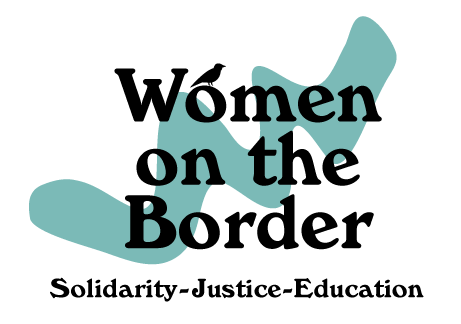Reaching Out to One of the Co-Founders of Women on the Border.
I met Josefina Castillo when she was the Director of the Austin chapter of the American Friends Service Committee (AFSC). The AFSC is the social justice arm of the Quakers. A few months after I published my lengthy article examining the impact of NAFTA on working women at the Mexican border, I opened up to an AFSC newsletter in late spring 2000, and read that a delegation was going to the border to meet workers organizing for justice in the maquiladoras. I signed up at the last minute. The AFSC was the main organizer and sponsor of the educational weekend.
Other organizers of the June 2000 delegation, Doug Zachary and Tom West, had been active in the old Austin Peace and Justice Coalition. I was late with my application but then Doug called me back saying, “we have room for you after all, we’ve got a cancellation and by the way, do you speak Spanish?” They, and I, were thrilled. Sixteen of us boarded a van on a Friday morning, drove the four hours to Eagle Pass and crossed the international bridge, into Piedras Negras, Coahuila, straight to the tiny offices of the Comité Fronterizo de Obreras (CFO). On the Mexico side, the CFO volunteers had prepared an agenda that included touring industrial parks, meeting workers and sharing a meal in their homes, hearing about their struggles for respect from company managers, and hearing how they were using the law to file grievances against abusive employers.
As it turned out, I not only helped with Spanish-English translations but also was able to fill in some knowledge gaps for those learning for the first time about free trade, about the maquiladora industries, about the enormous financial boon to the companies that got rid of paying union wages in the U.S. by outsourcing to Mexico, etc.
Upon meeting people like Julia Quiñonez, the coordinadora for the CFO, and other maquiladora worker/activists, it became clear to the visitors from the U.S. that the people in the CFO wanted us to share with the world their stories of toxicity, harassment, brutal work schedules, chronic illnesses, all connected to the working conditions established by the mostly U.S. owned companies. And while they couldn’t do much to hold a company accountable under NAFTA’s labor side agreement, they were finding hope in fighting for their rights under La Ley Federal del Trabajo.
By the time my first delegation was over I felt I had to go back for more stories. I wanted to support the women trying to empower themselves with learning their rights and fighting back against sexist and racist abuse. First, I thought I would collect stories for another law review article. And then the idea emerged that we might help our new friends at the border by finding a way to educate the broader public. The internet was becoming an important tool and after a few months I would end up reaching out to Josefina Castillo and to Judy Rosenberg, to help me found this organization, Women on the Border.
In December 2020, as we approached the 20th anniversary, I reached out to Josefina Castillo to go down memory lane with me about the origins of the educational project of Women on the Border. In the course of our chat we remembered our co-founder the late Dr. Judith Rosenberg, whose writings and insights about the role of women in the global economy are preserved on this website.
Here’s my Zoom interview with JOSEFINA CASTILLO.
